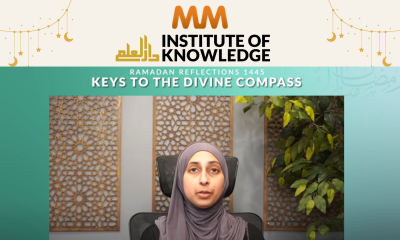Ramadan
The Ramadan Tafseer Series | Surah TaHa | Ayahs 36-39 | Abdul Nasir Jangda

Keep supporting MuslimMatters for the sake of Allah
Alhamdulillah, we're at over 850 supporters. Help us get to 900 supporters this month. All it takes is a small gift from a reader like you to keep us going, for just $2 / month.
The Prophet (SAW) has taught us the best of deeds are those that done consistently, even if they are small. Click here to support MuslimMatters with a monthly donation of $2 per month. Set it and collect blessings from Allah (swt) for the khayr you're supporting without thinking about it.












Pingback: Tafseer Taha : Ayat 36-39 | In the Pursuit of Writing
Muslim Comments (@muslimcomments)
July 19, 2013 at 7:08 PM
There is strong scholarly opinion, based upon evidence, that Mary was a prophet:
http://www.onislam.net/english/ask-about-islam/faith-and-worship/islamic-creed/167626-was-mary-a-prophetess.html
Momal
July 19, 2013 at 8:06 PM
Jazaka Allahu khayra for sharing the tafsir! I have a question regarding the use of the words “bahr” vs “yam” in regards to the body of water Musa as and Bani Isra’el crossed and Firawn and his army were drowned in. It was mentioned that “bahr” was used for a positive connotation while “yam” is used for a less positive or perhaps negative connotation.
Is there something about the inherent meanings of these words that makes them more appropriate in the respective contexts?